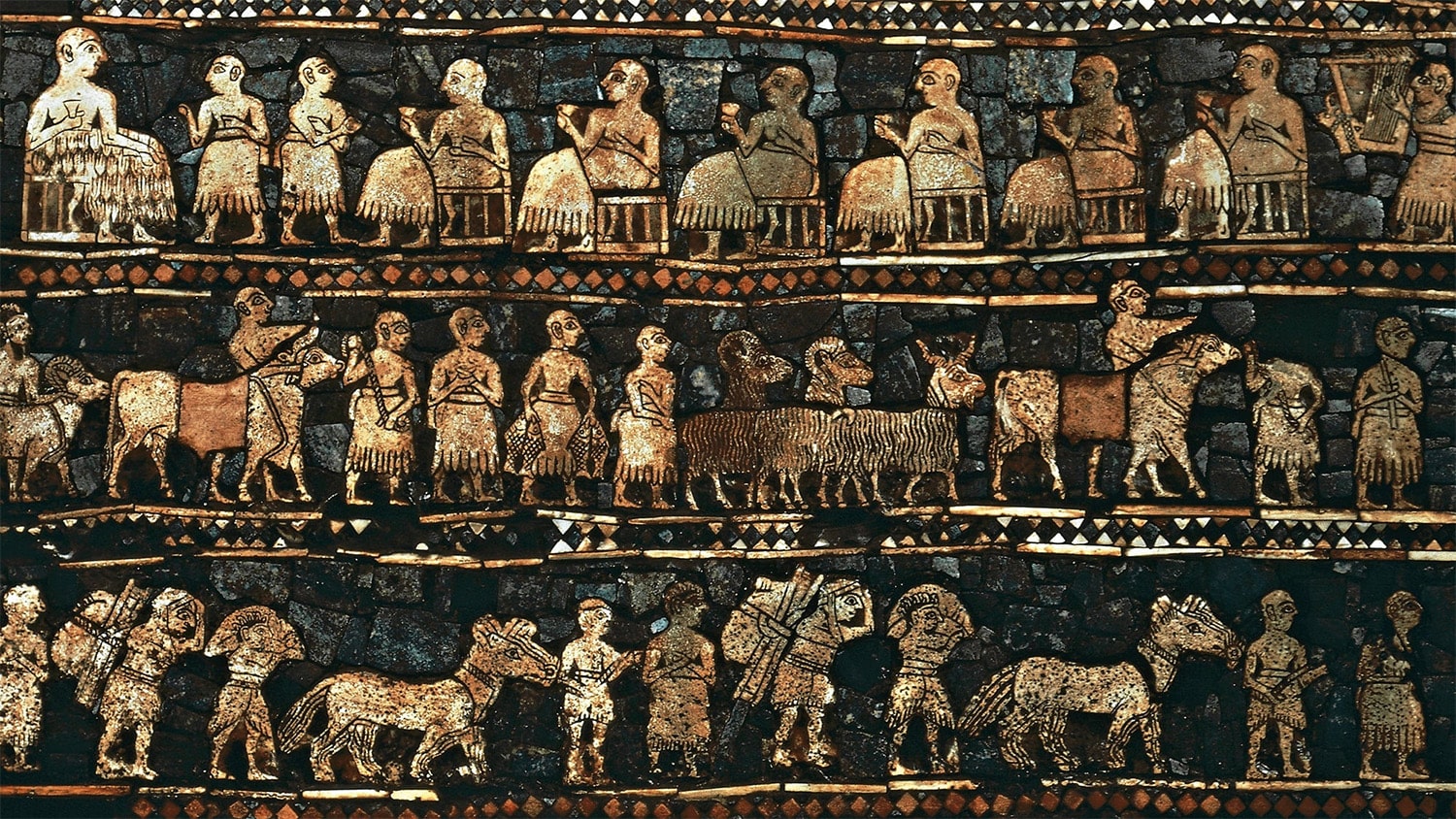
27 interesting facts about Sumerians
- 👁️ 315
The Sumerians, one of the earliest known civilizations, flourished in the fertile lands between the Tigris and Euphrates rivers, in what is now modern-day Iraq. This innovative society laid the groundwork for much of Western civilization, including the development of writing, the wheel, and, notably, sophisticated agricultural and culinary practices. Their diet was not only a reflection of their agricultural prowess but also an insight into their social, economic, and religious lives. The Sumerians’ culinary world was rich and varied, relying heavily on grains, legumes, and meats, and was complemented by a variety of fruits and vegetables. Let’s delve into the fascinating dietary habits and food practices of the Sumerian civilization.
- Barley was the staple grain of the Sumerians, used for making bread, beer, and stews.
- They were among the first to cultivate and incorporate onions, garlic, and leeks into their diet for flavoring dishes.
- Sumerians used clay ovens for baking bread, which was a daily food item and part of most meals.
- Beer was a common beverage, brewed from barley, and consumed by both adults and children.
- They domesticated animals such as sheep, goats, and cattle, primarily for meat, milk, and butter.
- Sumerian texts describe the use of sesame oil for cooking and seasoning.
- Fish from the Tigris and Euphrates rivers was a significant part of the Sumerian diet.
- They practiced date palm cultivation, using dates as a sweetener in foods and beverages.
- Legumes like lentils and chickpeas were important protein sources in the Sumerian diet.
- The Sumerians are credited with the invention of cheese-making techniques.
- They had knowledge of irrigation, which allowed them to grow a variety of fruits and vegetables, including cucumbers and apples.
- Archaeological finds have shown that Sumerians consumed a type of porridge made from grains.
- They were known to have used honey as a sweetener, long before the widespread use of sugar.
- Meat was often cooked in stews with vegetables and legumes, seasoned with local herbs.
- Sumerians held banquets and feasts that featured music and dance, where food and beer were plentiful.
- Bread was often used as a utensil for scooping food, similar to practices in some cultures today.
- The Sumerian epic of Gilgamesh mentions a variety of foods, indicating the importance of cuisine in their culture.
- Tablets from the period include recipes, one of the earliest known occurrences of written culinary instructions.
- The Sumerians used fermentation techniques to produce beer, vinegar, and possibly other fermented foods.
- They understood the nutritional value of combining grains with legumes to form a complete protein.
- Dairy products were consumed, but they likely had methods to process or ferment milk to preserve it.
- Sumerians were among the first to cultivate pomegranates, enjoying both their taste and nutritional benefits.
- They used gourds and clay pots for storing and transporting food and water.
- Archaeological evidence suggests that Sumerians were among the first to engage in the organized breeding of livestock for food.
- Religious offerings often included food items, reflecting the belief in the sanctity of sustenance.
- The use of spices and herbs in cooking was advanced for the time, with evidence of imported spices from distant lands.
- Banquets, particularly for religious or royal events, were elaborate affairs with a wide variety of foods and drinks.
The Sumerians’ contributions to cuisine offer a glimpse into one of humanity’s earliest civilizations, highlighting their advancements in agriculture, culinary arts, and dietary understanding. Their diet was not just about sustenance but also played a significant role in their social rituals, religious practices, and everyday life. Through their innovative farming techniques, the Sumerians were able to cultivate a diverse array of crops, contributing to a rich and varied diet that laid the groundwork for future culinary developments. As we explore the eating habits of the Sumerians, we are reminded of the enduring relationship between culture, agriculture, and food, a relationship that continues to shape our world today.
The Sumerians, one of the earliest known civilizations, flourished in the fertile lands between the Tigris and Euphrates rivers, in what is now modern-day Iraq. This innovative society laid the groundwork for much of Western civilization, including the development of writing, the wheel, and, notably, sophisticated agricultural and culinary practices.…